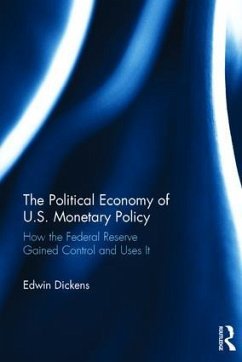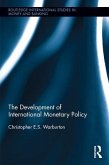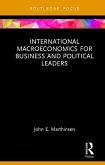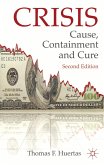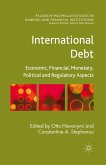In book explains how flexible exchange rates became necessary to accommodate the Federal Reserve's relentless efforts to prevent progressive social change. It is argued that the Federal Reserve is an institutionalized alliance of the large New York banks and the large regional banks. When these two groups of banks are united, they constitute an unassailable force in the class conflict. However, when the large regional banks are at loggerheads with the large New York banks over the proper role of bank clearinghouses during the populist period, along with the proper role of the Eurodollar market during the social democratic period, there is an opening for progressive social reforms.
Hinweis: Dieser Artikel kann nur an eine deutsche Lieferadresse ausgeliefert werden.
Hinweis: Dieser Artikel kann nur an eine deutsche Lieferadresse ausgeliefert werden.

